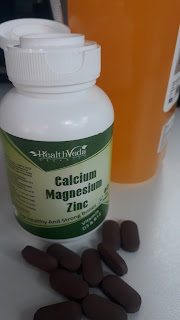Melatonin capsules simply adds to our melatonin levels
Melatonin, aka the sleep hormone, is produced by our pineal gland to help regulate our biological clock. It’s activated by light and dark and is secreted at night.
Melatonin can be derived from plants and used as a supplement to help improve sleep, and it’s often used as a treatment in sleep disorders, as a remedy for jet lag, and among shift-workers.
As a supplement, melatonin is mostly safe, but it can produce side effects such as grogginess, dizziness, and headaches — especially if you’re taking too much. Your best bet is sticking to a 0.3 milligram dose, which is significantly less than you’ll find in a standard supplement dose.
Wouldn’t it be great if you could pop a pill for better sleep? A pill that’s non-habit-forming, doesn’t require a prescription, and doesn’t make you do strange things like eat in your sleep? Well, maybe you can. While more satisfying zzz’s in pill form sounds too good to be true, there’s promising evidence that melatonin, the naturally occurring hormone in our bodies, can be harnessed as a supplement for better sleep.
What is melatonin?
Melatonin is a multitasking hormone produced by the brain’s pinecone-shaped pineal gland. Melatonin plays several roles in the body, including helping to regulate blood pressure, boost immune function, and manage cortisol levels. But melatonin is probably best known for its soporific powers. Chief among its responsibilities is regulating the body’s circadian rhythm so it knows when to rest and when to wake up. That’s why melatonin is often referred to as the body’s sleep hormone.
How does melatonin work?
Melatonin is controlled by light and darkness. When we’re awake and the sun’s out, we don’t produce any melatonin. But at night, the onset of darkness signals to our pineal gland to release melatonin into the bloodstream. Your melatonin levels begin to increase about two hours before you go to bed, typically around 9 p.m., and peak about five hours later. As melatonin levels rise throughout our body — it’s found in a variety of our organs, including our eyes, bones, ovaries/testes and gut — our body knows it’s time to drift off to Slumber Town.
Supplementing with melatonin
Humans aren’t the only organism that produces melatonin. It’s also found in meat (eggs and fish are particularly high in melatonin compared to other animal products) as well as leaves and seeds, in which it protects plants from oxidative and environmental stress. As a result, many plants are a good source of melatonin. But melatonin is also extracted from these leaves and seeds and conveniently packed into melatonin supplements, for all of your sleep-hacking needs.
Melatonin Capsules
Melatonin supplements are used to treat a variety of sleep and circadian rhythm disorders, ranging from insomnia to jet lag. It also makes sleep more efficient and helps people fall asleep faster. Melatonin supplements work the same as the melatonin we naturally produce works. Ingested melatonin capsules simply adds to our melatonin levels, so people who are melatonin-deficient will likely experience the biggest benefit from supplementing with melatonin. And according to research, there’s no need to worry that supplements will interfere with your body’s ability to produce melatonin on its own.


Comments
Post a Comment